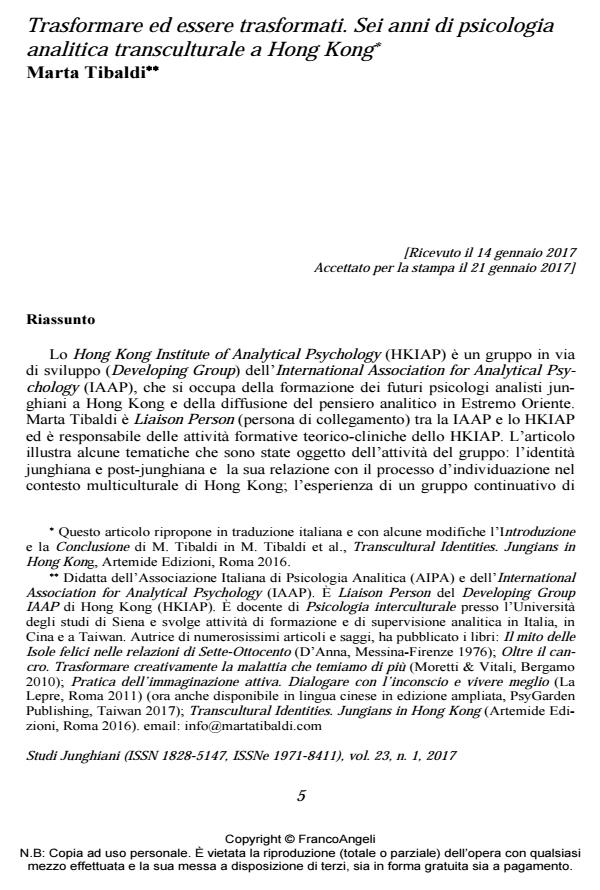To transform and to be transformed. Six years of transcultural analytical psychology in Hong Kong
Journal title STUDI JUNGHIANI
Author/s Marta Tibaldi
Publishing Year 2017 Issue 2017/45
Language Italian Pages 15 P. 5-19 File size 221 KB
DOI 10.3280/JUN2017-045001
DOI is like a bar code for intellectual property: to have more infomation
click here
Below, you can see the article first page
If you want to buy this article in PDF format, you can do it, following the instructions to buy download credits

FrancoAngeli is member of Publishers International Linking Association, Inc (PILA), a not-for-profit association which run the CrossRef service enabling links to and from online scholarly content.
The Hong Kong Institute of Analytical Psychology (HKIAP) is a Developing Group of the International Association for Analytical Psychology (IAAP). It deals with the training of future Jungian analysts in Hong Kong and the diffusion of the analytical though in East Asia. Marta Tibaldi is the Liaison Person between the IAAP and the HKIAP and is responsible of theoretical and clinical activities of the group. The article outlines some of the topics that, among others, have been a spe-cific object of HKIAP: a reflection on the Jungian and post-Jungian identity and its relationship with the individuation process in a multicultural context such as Hong Kong; the experience of an on-going Active Imagination Experiential Group and the use of the technique of "Active Deep Writing" to develop an imaginal approach to psychic dynamics; the study of the Chinese gender complex and its implications on the internal and relational reality of Eastern Asian women and men.
Keywords: Hong Kong, Jung, analytical psychology, active imagination, active deep writing, intercultural
Marta Tibaldi, Trasformare ed essere trasformati. Sei anni di psicologia analitica transculturale a Hong Kong in "STUDI JUNGHIANI" 45/2017, pp 5-19, DOI: 10.3280/JUN2017-045001